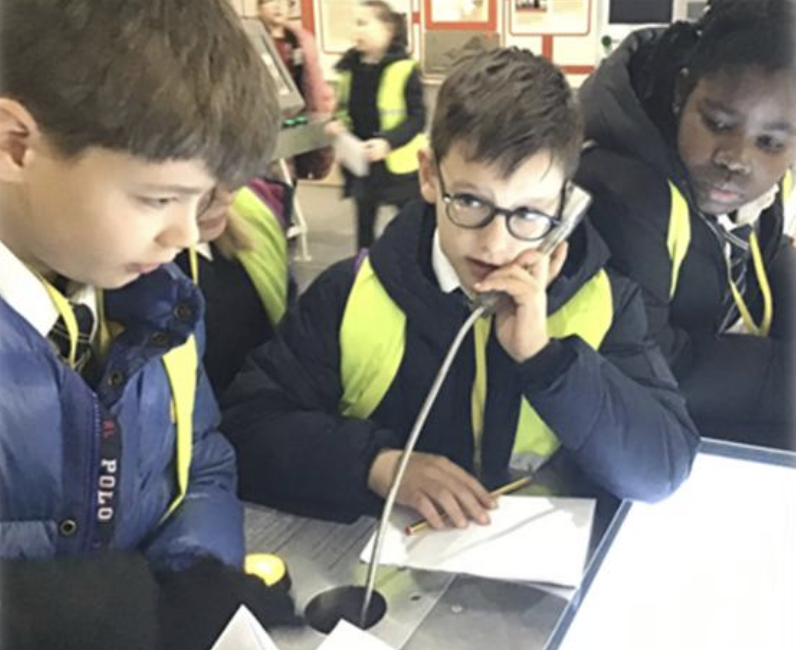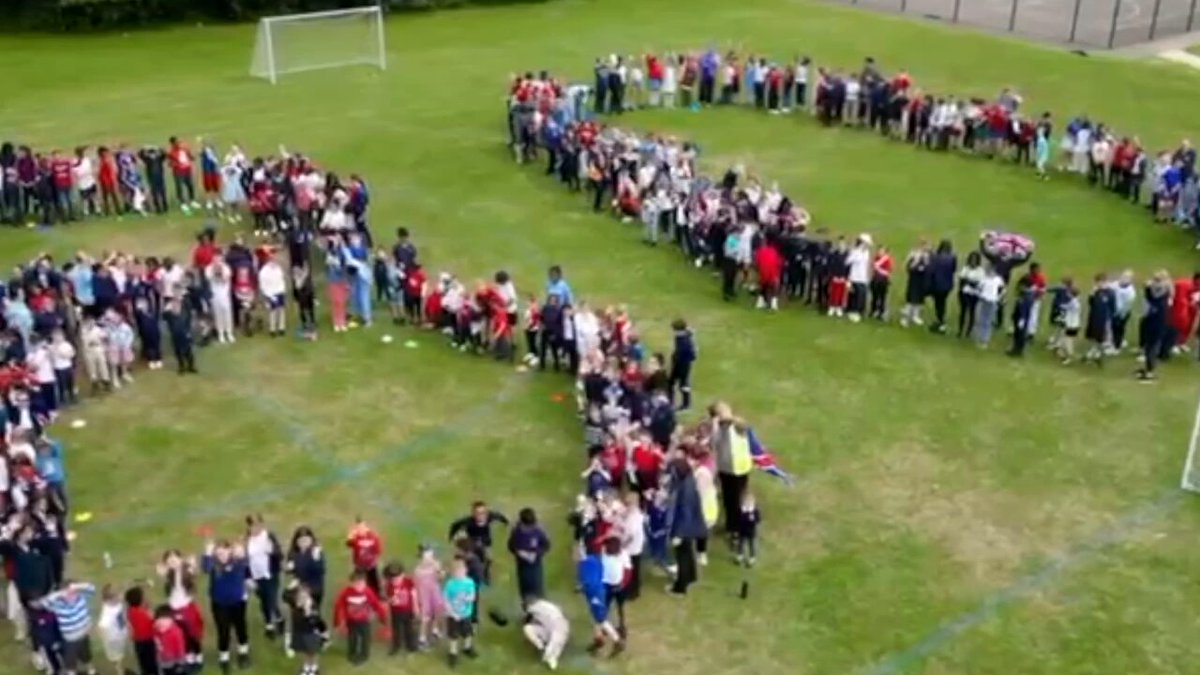Science
Science at Freshwaters
At Freshwaters, we understand the importance of a high-quality science education which provides the foundations for understanding the world through specific disciplines of biology, chemistry and physics. Science has changed our lives and is vital to the world’s future prosperity, and all pupils will be taught essential aspects of the knowledge, methods, processes and uses of science. Through building up a body of key foundational knowledge and concepts, pupils will be encouraged to develop a sense of excitement and curiosity about natural phenomena.
By the time the children leave us for secondary education we want them to be confident with the basic disciplines of biology, chemistry and physics.
We want the children to feel confident to discuss and write about science using the relevant scientific vocabulary. We want them to use the technical terminology accurately and precisely. They should build up an extended specialist vocabulary. They should also apply their mathematical knowledge including collecting, presenting and analysing data. The vocabulary linked to a specific area of science is taught at the beginning of each lesson to enable all our pupils to access their learning without any barriers. A Big Question is then used to open up an enquiry led lesson and a range of resources used to draw conclusions and explain their findings.
‘The Investigation of the meaning of words is the beginning of education’ – Antisthenes 455 BC
We want our pupils to enjoy and be eager to learn more about the world around them, we want them not only to question how processes work but to research and share their findings.
We want them to realise that science knowledge, research and development has changed the world such as in: medicine, computing, technology, forecasting environmental systems. We want them to have the passion that they can choose to work in these various industries.
Working Scientifically
‘Working scientifically’ specifies the understanding of nature, processes and methods of science. At Freshwaters we will not teach it as a separate strand. These enquiry skills will be embedded within the lessons, so that the children will learn a variety of approaches to answer relevant scientific questions.
Scientific enquiry skills will include
- Observing over time: pattern seeking
- Identifying
- Classifying and grouping
- Comparative and fair testing
- Researching using secondary sources (internet/books)
Science is taught by class teachers from Nursery through to year 6. In our early years, science is taught through, carpet time, enhancements, continuous provision and immersive play. We believe in making links in science lessons to our creative curriculum, bringing the topics and books alive. Science at Freshwaters includes hands on science lessons, the use of documentaries, media, visiting groups, immersive days and visits to a range of museums.
What will our Scientists be learning?
Nursery
Many of the adult-led activities in Nursery have a science focus, and naturally appeal to young, enquiring minds. They may not be labelled biology, chemistry or physics, but nonetheless, they introduce simple scientific concepts that will be built on as they get older. During the year they will learn about a variety of activities that link to calendar events such: harvest and growing, observing the changing seasons, light and dark, melting, animals and habitats.
Reception
Our reception pupils will again be carrying out many activities during the year which are linked to the creative curriculum and calendar events. In Reception the learning is through carpet time, enhancements and continuous provision. They will build on their knowledge from their time in Nursery and carry out activities such as growing plants, looking at animal lifecycles, nature trails, mini beast walks, seasonal changes, animals and their habitats, keeping healthy and materials.
Year 1
In year one there are four topics which will be spread out during the year. During the year the children will be looking at Seasonal Changes observing how the weather and day length changes during the seasons. Children will have the opportunity to locate and identify the different types of Plants in the school’s grounds and plant seeds and observe the growth of plants. The children will be able to identify and name Animals, Including Humans focusing on the animal’s diet and similar features. In Everyday Materials, the children will have the opportunity to identify different materials, find out that different materials have different properties and investigate the best material to make objects.
Year 2
Building from the previous year, the children when they are in year 2 will continue with observing Plants, they will discover how plants can grow and mature from seeds or bulbs and they will investigate the suitable conditions for plants to grow and stay healthy. The children will identify the different habitats and microhabitats in the topic Living Things and their Habitats exploring around the school grounds and research about the animals who live in unfamiliar areas such as Polar Regions and deserts. They will find out how animals obtain their food and show their findings using food chains. In the topic Animals, Including Humans, the children will learn how Animals have offspring which grow into adults and identify the conditions which are vital for survival and how to stay healthy. The children will investigate the Uses of Everyday Objects, identifying the suitability of materials and their uses and experimenting how solid objects can be changed with squashing, bending, twisting, and stretching.
Year 3
In year 3, the children continue to develop their knowledge of Plants identifying the functions of various parts and requirements for growth and researching how the seeds are formed and dispersed. They will further their knowledge of Animals, including Humans identifying the right kinds of nutrition and the function of skeletons and muscles. Children will be comparing and identifying different Rocks researching the simple properties and finding out how fossils are formed. In the topic of Light, the children will be recognising how light is needed to see, exploring how light is reflected from different surfaces and exploring how shadows are made. In Forces and Magnets the children will be experimenting comparing how different objects move on different surfaces, they will be looking at magnetic forces and why some materials are magnetic and some are not.
Year 4
In year 4, the children will be further developing their knowledge about Living Things and their Habitats. This year, they will learn about grouping animals, using classification keys and exploring what may happen to animals if there is a change in their environments and if that change is a positive or a negative effect. In Animals, including Humans, children will investigate the digestive system and the role of teeth, they will compare how human teeth differ from other animals based on their diet. They will revisit the food chain from year 2 and identify producers, predators and prey, exploring the local habitats and more unfamiliar environments. In Sound, the children will learn how sounds are made and heard and look at patterns with volume and pitch. In the hands-on topic of Electricity, children will be identifying appliances with need electricity to work and creating their own simple series electrical circuits, naming and explaining the part of different components. In States of Matter, the children will compare and group solid, liquids and gases. They will find out what happens to particles with materials when they are heated and cooled and be able to explain the process of condensation and evaporation within the water cycle.
Year 5
In year 5, the children will return to the topic of Living Things and their Habitats they will identify and compare the life-cycles of mammals, amphibians, insects and birds, they will develop their knowledge looking at the life process of reproduction in some animals and plants. In Animals, including Humans, the children will describe the changes as humans develop to old age. The children will build on their previous knowledge in Properties and Changes of Materials they will group materials based on their properties and look at reversible and non-reversible changes when they mix materials together. In Earth in Space, the children will be able to describe the movement of the Earth and other planets in relation to the sun in the solar system and explain why there is night and day. In Forces the children will explain how unsupported objects will fall due to gravity and identify the effects of air resistance, water resistance and friction, they will describe how pulleys, levers and gears work.
Year 6
In year 6, the children will revisit year 4 topic of Living Things and their Habitats by looking at the classification system in more detail, this time including micro-organisms, plants and animals. In Animals, including Humans, the children will be learning about the circulatory system, describing the function of the heart, blood and blood vessels, exploring how diet, drugs and exercise impact on the body. They will learn about Evolution and Inheritance, discovering how evidence with the evidence of fossils provide information about living things that have changed over time, they will research about how animals have adapted to an environment and look at how offspring are different to parents. Pupils will build on the year 3 work in Light by explaining how light travels in straight lines and create a periscope using mirrors. In Electricity the children will use the recognised symbols when drawing circuits and explore about the brightness of a bulb with the number of cells within the circuit.

























